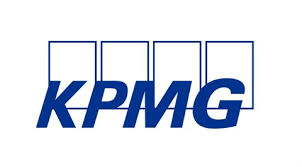Graduate Jobs
Kuala Lumpur
As part of SAP Team, you will drive business transformation and on-going operations and maintenance services for the full suite of SAP software solutions using an array of HANA-based preconfigured solutions and assets.
Generalist Jobs
Generalist jobs accept a wide range of disciplines including Banking and Finance
Graduate Jobs
Kuala Lumpur
Hires applicants with degrees in
- Accounting
- Banking and Finance
Leverage on toolsets and products in the computer forensic realm to deliver forensic technology solutions. Be involved in project activities including data collection and assessment.
Graduate Jobs
Shah Alam
Hires applicants with degrees in
- Accounting
- Banking and Finance
Ensure proper recording of transactions for fixed assets and inventories of the company in accordance with international accounting standards and company policies. Ensure timely and accurate monthly closing of accounts, reconciliation and reporting.
Graduate Jobs
Kuala Lumpur
Hires applicants with degrees in
- Banking and Finance
- Economics
Review and update existing contracts. Participate in negotiations of contract terms with internal and external business partners. Explain terms and conditions to managers and interested parties.
Graduate Jobs
Kuala Lumpur
Hires applicants with degrees in
- Banking and Finance
- Business and Commerce
The Graduate Development Program (GDP) is a 2-year program designed for passionate graduate talents to deep-dive into various business functions, pivotal to the e-commerce and digital financial services landscape at Shopee and SeaMoney.
Graduate Jobs
Malaysia
Hires applicants with degrees in
- Accounting
- Banking and Finance
- Business and Commerce
Preparing corporate tax computations and tax returns for timely submissions to the tax authorities. Liaising with the tax authorities on tax matters. Assisting tax consultants in managing job portfolio and related assignments.
Graduate Jobs
Kuala Lumpur
Hires applicants with degrees in
- Accounting
- Banking and Finance
- Business and Commerce
Build communication, teamwork, analytical, problem-solving skills through various IA engagements. Understand and be part of an industry (FinTech) which will definitely add value to your career experience.
Graduate Jobs
Kuala Lumpur
Hires applicants with degrees in
- Accounting
- Banking and Finance
- Business and Commerce
Build communication, teamwork, analytical, problem-solving skills through various IA engagements. Understand and be part of an industry (FinTech) which will definitely add value to your career experience.
Graduate Jobs
Kuala Lumpur
Hires applicants with degrees in
- Accounting
- Banking and Finance
- Business and Commerce
As part of our Finance & Enterprise Performance team, you’ll act as a trusted advisor to CFOs, COOs, CIOs, and key executives.You’ll support large scale financial transformations by leveraging cutting edge technology and be able to take your career to the next level!
Graduate Jobs
Gauteng
Hires applicants with degrees in
- Accounting
- Banking and Finance
- Economics
The purpose of this role is to support the Assurance Services team, as part of the graduate programme, to deliver services in an advisory context with the aim of assisting clients in enabling the success of their finance function.
Graduate Jobs
Johor Bahru
Hires applicants with degrees in
- Accounting
- Banking and Finance
- Economics
Computation of financial ratios and revised tax computations. Support the team in proposal writing and development of presentation materials. Assists to prepare analysis and other information for submission to the tax authorities during tax audits.
Graduate Jobs
Malaysia
Hires applicants with degrees in
- Accounting
- Actuarial Studies
- Administration
- Agriculture
- Architecture
- Arts and Humanities
- Aviation
- Banking and Finance
- Business and Commerce
- Communications
- Compliance
- Computer Science
- Construction
- Consulting
- Customer Service
- Cyber Security
- Data Science and Analytics
- Defence
- Design and User Experience
- Economics
- Education
- Engineering
- Engineering Aerospace/Aeronautical
- Engineering Chemical/Processing
- Engineering Civil/Structural
- Engineering Electrical
- Engineering Environmental
- Engineering Geotechnical
- Engineering Mechanical
- Engineering Mechatronics
- Engineering Mining
- Engineering Petroleum
- Engineering Software
- Environment
- Fast Moving Consumer Goods
- Food Technology
- Funds Management
- Geology
- Government
- Horticulture
- Hospitality, Sports and Tourism
- Human Resources
- Industrial Design
- Information Systems
- Information Technology
- Insurance
- Intelligence
- Investment Banking
- Journalism
- Law
- Logistics and Supply Chain
- Management
- Marine Biology
- Marketing and Sales
- Mathematics
- Media and Advertising
- Mining Oil and Gas
- Operations
- Physics
- Planning and Surveying
- Procurement
- Project Management
- Property
- Recruitment
- Research and Development
- Retail
- Science
- Statistics
- Telecommunications
- Transport
- Utilities
Marsh is currently seeking graduates and early career talent with up to 2 years work experience to join our award-winning Early Career & Graduate Program starting in July 2024.based in our Kuala Lumpur office.
Graduate Jobs
Malaysia
Hires applicants with degrees in
- Accounting
- Actuarial Studies
- Administration
- Agriculture
- Architecture
- Arts and Humanities
- Aviation
- Banking and Finance
- Business and Commerce
- Communications
- Compliance
- Computer Science
- Construction
- Consulting
- Customer Service
- Cyber Security
- Data Science and Analytics
- Defence
- Design and User Experience
- Economics
- Education
- Engineering
- Engineering Aerospace/Aeronautical
- Engineering Chemical/Processing
- Engineering Civil/Structural
- Engineering Electrical
- Engineering Environmental
- Engineering Geotechnical
- Engineering Mechanical
- Engineering Mechatronics
- Engineering Mining
- Engineering Petroleum
- Engineering Software
- Environment
- Fast Moving Consumer Goods
- Food Technology
- Funds Management
- Geology
- Government
- Horticulture
- Hospitality, Sports and Tourism
- Human Resources
- Industrial Design
- Information Systems
- Information Technology
- Insurance
- Intelligence
- Investment Banking
- Journalism
- Law
- Logistics and Supply Chain
- Management
- Marine Biology
- Marketing and Sales
- Mathematics
- Media and Advertising
- Mining Oil and Gas
- Operations
- Physics
- Planning and Surveying
- Procurement
- Project Management
- Property
- Recruitment
- Research and Development
- Retail
- Science
- Statistics
- Telecommunications
- Transport
- Utilities
Marsh is currently seeking graduates and early career talent with up to 2 years work experience to join our Sales Academy, part of our award-winning Early Career & Graduate Program starting in July 2024 based in our Kuala Lumpur and Penang office.
Malaysia Banking and Finance Jobs and Opportunities
Snapshot of Malaysia’s Banking and Finance Sector
Malaysia’s banking sector is an important driver of its upward rise towards a high-income economy, and its position within the Asia-Pacific. One of its strengths is the fact that “traditional” banking and derivatives trading exist side by side with Islamic or “sharia complicit” finance. Indeed, Malaysia’s Islamic banking sector is one of the most advanced in the world, and is a strong point of difference that it can use to build its position in the global community. At the same time, the more globally widespread financial systems and institutions are also well represented, meaning Malaysia’s financial sector is well balanced and services a broad range of people and institutions.
What do you need to get a job in this industry?
The growth of the Malaysian banking sector means that there is a steady demand for qualified graduates in all specialties. For jobs in the traditional banking sector, the usual requirements of tertiary qualification, communication skills and work experience apply. For those wishing to get a job in Islamic finance, strong understanding of the Islamic banking system is required, (which may require a specialised degree). For these jobs, preference is given to people of Islamic faith, although some banks also welcome people from diverse religious or non-religious background.
Graduate Programs in Malaysia
Graduate programs are mainly offered by large organisations, such as the major banks and financial institutions. Because the programs are structured and prepare a graduate for a position of leadership, positions are limited, and competition is high. For the best chance, one should apply to as many as possible, and build one’s skills and experience-base through work experience or a part time job. Plenty of entry-level positions are also available, and if secured, can be a good way to work one’s way up to a high position in the industry.
Where can you work in Finance and Banking?
The type of career path available to a job-seeker in this industry will depend first of all whether one chooses to work in traditional or Islamic banking.
In traditional banking, there are three relatively distinct categories depending on the client that is being served – members of the public (retail banking), businesses (commercial banking) and High Net-Worth Individuals (private banking). Many banks (especially multinationals) will have jobs in all these categories. These banks are sometimes called “full banks”. Other options include mutual funds, private banks, public finance and more specialised services companies such as risk advisories.
In Islamic Banking, certain types of activity are prohibited, such as charging interest (a staple revenue-generator in “traditional” banking), speculation and excessive risk, investment in organisations that partake in activities or sell goods that are haram. Instead, Islamic banking involves risk-sharing, with activities such as profit sharing, sale-and-buyback, equity investments, joint ventures and safekeeping all commonplace. Instead of conventional stocks, derivatives and bonds, Islamic investment banking involves sukuk, currency swaps and equity funds.
Types of Finance Jobs:
Many of these jobs are available in both traditional and Islamic finance, the main difference between the two being that Islamic financiers will not engage in interest-taking, risk-taking etc.
- Financial Analyst/Strategist
Financial analysts use companies’ financial statements, insights into management and broader knowledge about the economic microenvironment to make a judgement about their investment potential. They are vital to the operation of investment banks, wealth management and hedge-funds, as well as insurance firms. They help to make a judgement on the risks and rewards that must be considered in any speculative financial decision.
- Financial Advisor
Financial advisors usually work in retail banking, and may engage in such tasks as financial planning, legal advice, compliance, brokering and the preparation of tax. Advisory firms vary greatly in size, with some being part of large organisations and others being smaller and more specialised.
- Quantitative Analyst (Quant)
Quantitative analysts use mathematical and statistical tools to value potential and current investments. In traditional banking these will include stocks and derivatives, and quants will be highly important to risk management. In Islamic banking the investments being valued may include sukuk and currencies. In both financial spheres, quantitative analysts are increasingly important, especially when it comes to investment banking and wealth management.
- Financial Risk Manager
Risk management is mostly a traditional banking position, since it is linked to speculation and insurance. Forms of Islamic insurance will also require them for risk-sharing engagements. Risk managers are not just for managing speculation, but also for advising companies on reducing their level of risk in their business activities.
- Portfolio Manager
Portfolio managers take and consider the information from analysts, risk managers and strategists, as well as stakeholders, and use them as the basis for their investment decisions.
- Financial Commentator
Financial commentators serve as an important link between the financial sector and the public, by writing and speaking about current events in the market, companies’ behaviour and consumer trends that may impact upon the economy. They are often the main source of information for laypeople about the financial market, and are also useful to other finance workers and business people looking to find out what is going on with the micro- and macro- environment. Although they are not certified financial advisors, their information has a lot of power and is often the basis for many people’s investment and other business dealings. As such they have a responsibility to be accurate and timely with their information, and to have a good understanding of the forces that work to shape the market.
Salary Estimates for Finance Graduates
Banking and finance is one of the most highly paid industries in Malaysia, however the highest salaries are commanded by people with years of experience. Starting salaries are modest, with median RM 30 804 per year for first-year bankers. It depends on the role being fulfilled though – tellers earn ~RM 30 000 per year while financial analysts can earn more than twice that. Bonuses and profit sharing may also add to one’s financial package.
Benefits
Most companies will offer their workers some kind of benefit package, which will usually include monetary bonuses, pension plans and health insurance.
















